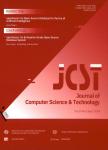Scheduling Multi-Mode Projects under Uncertainty to Optimize Cash Flows: A Monte Carlo Ant Colony System Approach
Scheduling Multi-Mode Projects under Uncertainty to Optimize Cash Flows: A Monte Carlo Ant Colony System Approach作者机构:Department of Computer ScienceSun Yat-sen UniversityGuangzhou 510006China
出 版 物:《Journal of Computer Science & Technology》 (计算机科学技术学报(英文版))
年 卷 期:2012年第27卷第5期
页 面:950-965页
核心收录:
学科分类:120202[管理学-企业管理(含:财务管理、市场营销、人力资源管理)] 12[管理学] 1202[管理学-工商管理] 07[理学] 070102[理学-计算数学] 0701[理学-数学]
基 金:the National Science Fund for Distinguished Young Scholars of China under Grant No.61125205 the National Natural Science Foundation of China (NSFC) under Grant No. 61070004 NSFC-Guangdong Joint Fund under Key Project No. U0835002
主 题:project scheduling optimization under uncertainty cash flow ant colony optimization Monte Carlo simulation
摘 要:Project scheduling under uncertainty is a challenging field of research that has attracted increasing attention. While most existing studies only consider the single-mode project scheduling problem under uncertainty, this paper aims to deal with a more realistic model called the stochastic multi-mode resource constrained project scheduling problem with discounted cash flows (S-MRCPSPDCF). In the model, activity durations and costs are given by random variables. The objective is to find an optimal baseline schedule so that the expected net present value (NPV) of cash flows is maximized. To solve the problem, an ant colony system (ACS) based approach is designed. The algorithm dispatches a group of ants to build baseline schedules iteratively using pheromones and an expected discounted cost (EDC) heuristic. Since it is impossible to evaluate the expected NPV directly due to the presence of random variables, the algorithm adopts the Monte Carlo (MC) simulation technique. As the ACS algorithm only uses the best-so-far solution to update pheromone values, it is found that a rough simulation with a small number of random scenarios is enough for evaluation. Thus the computational cost is reduced. Experimental results on 33 instances demonstrate the effectiveness of the proposed model and the ACS approach.



